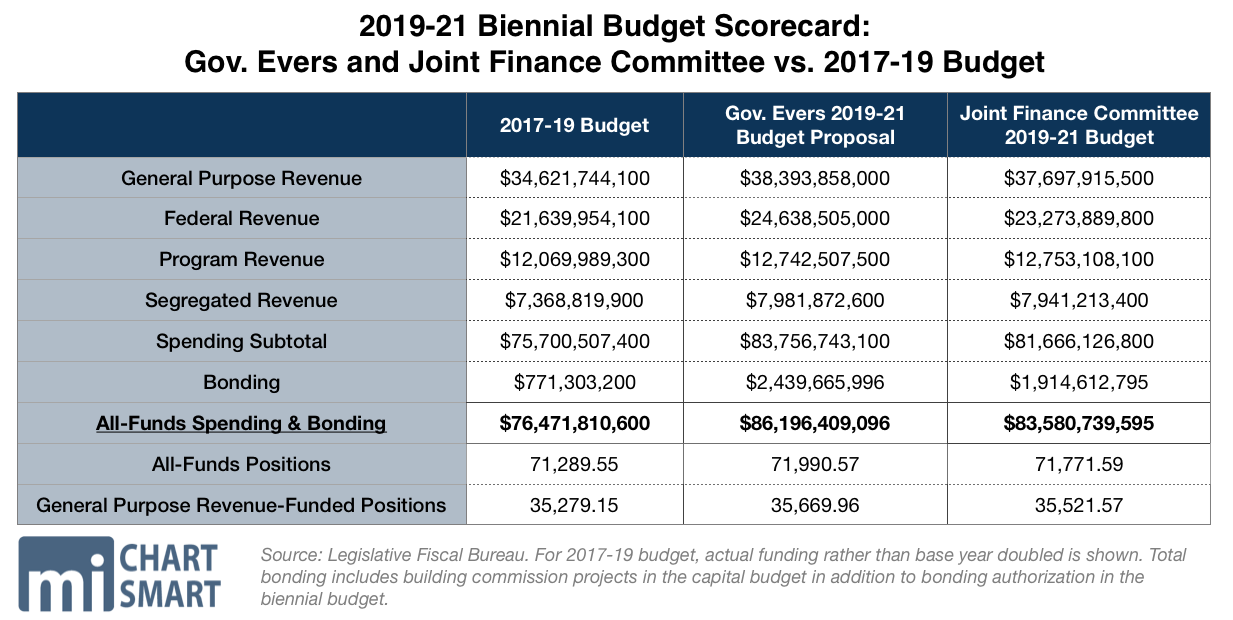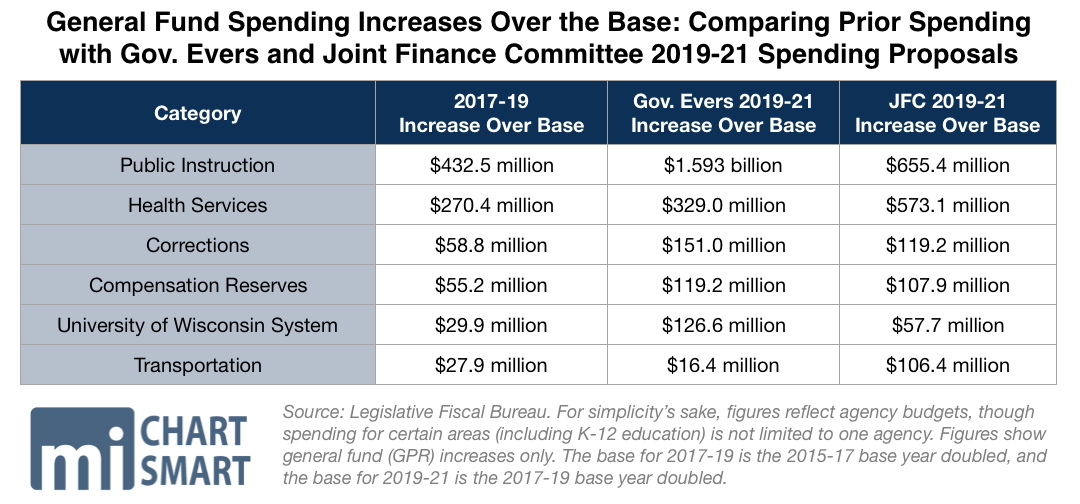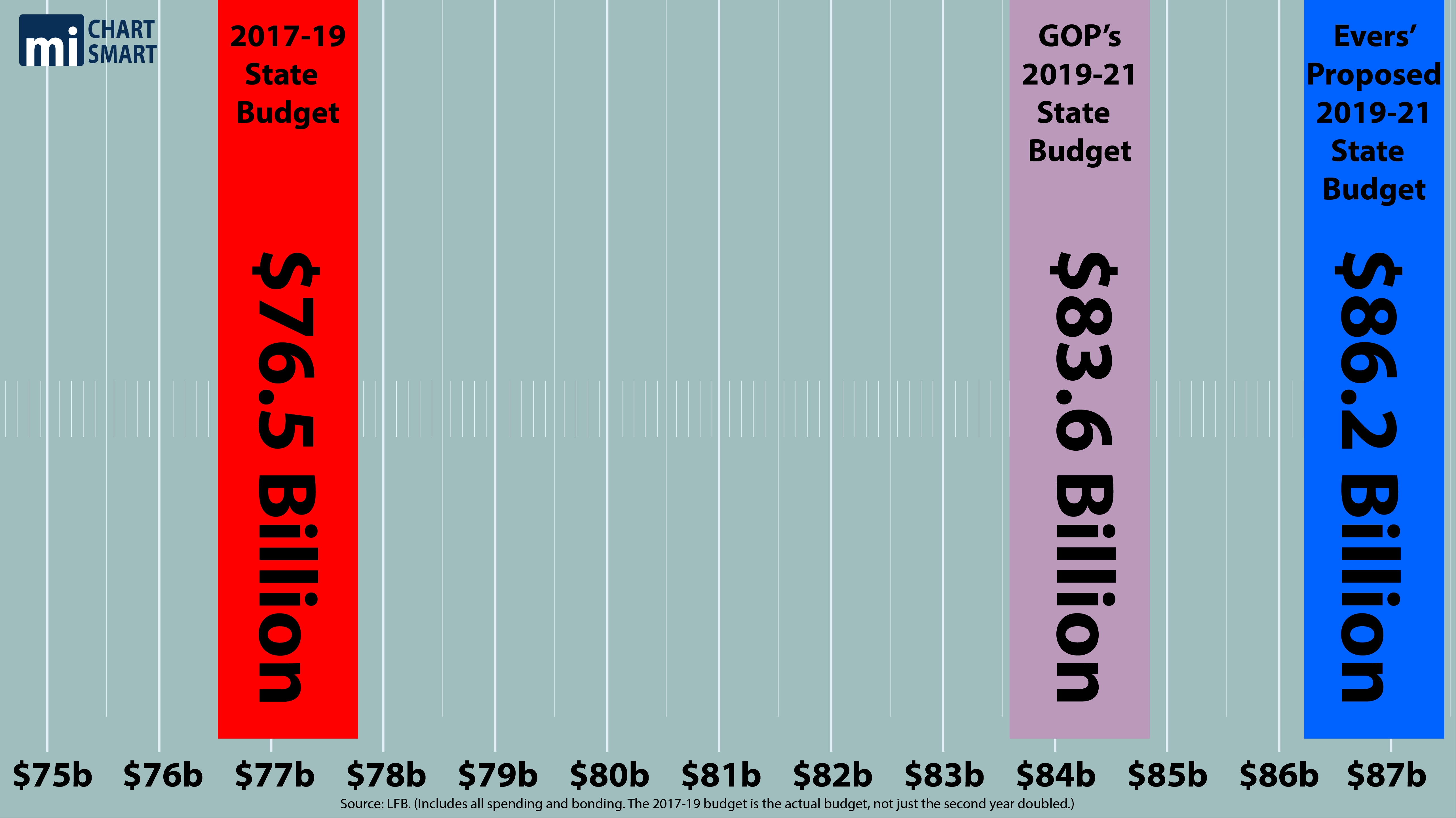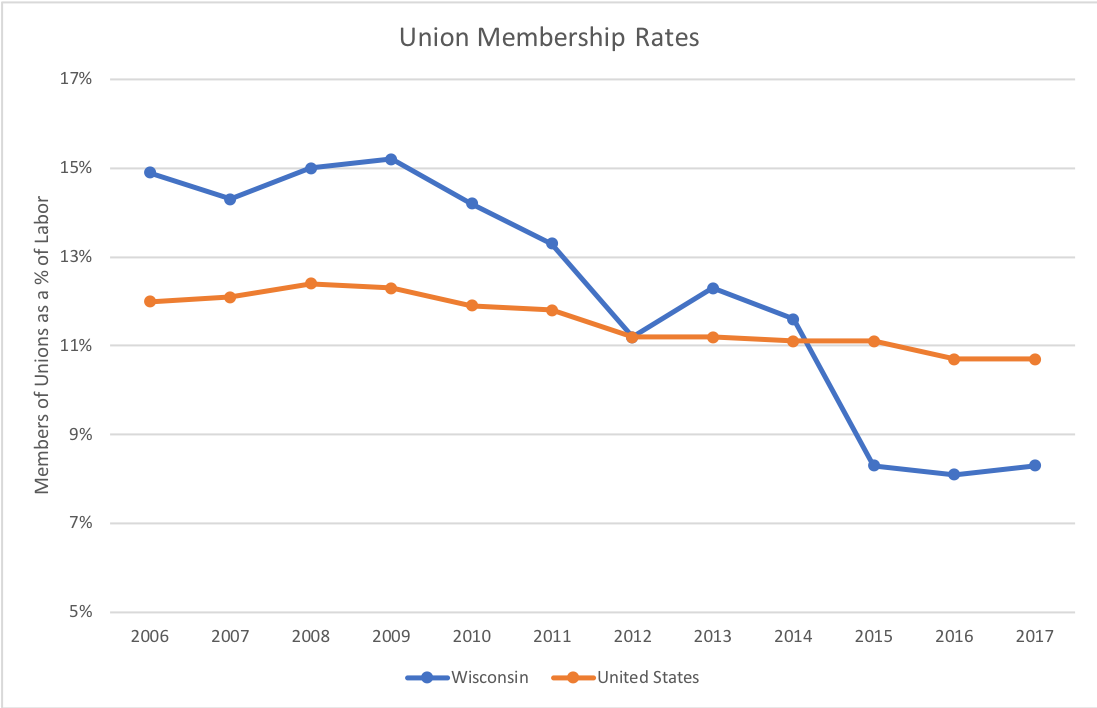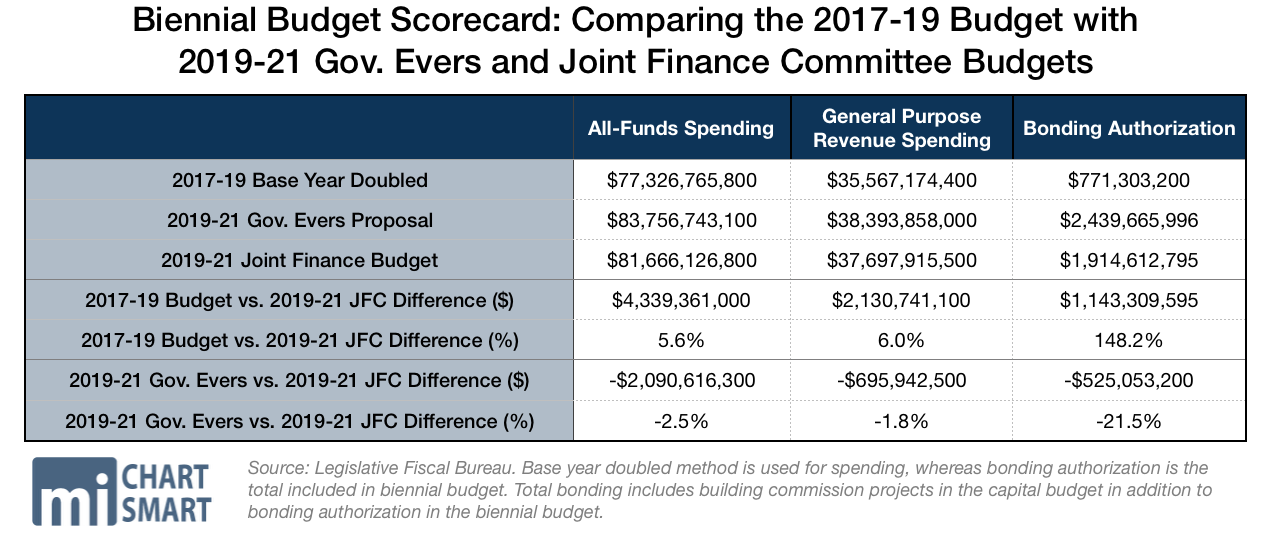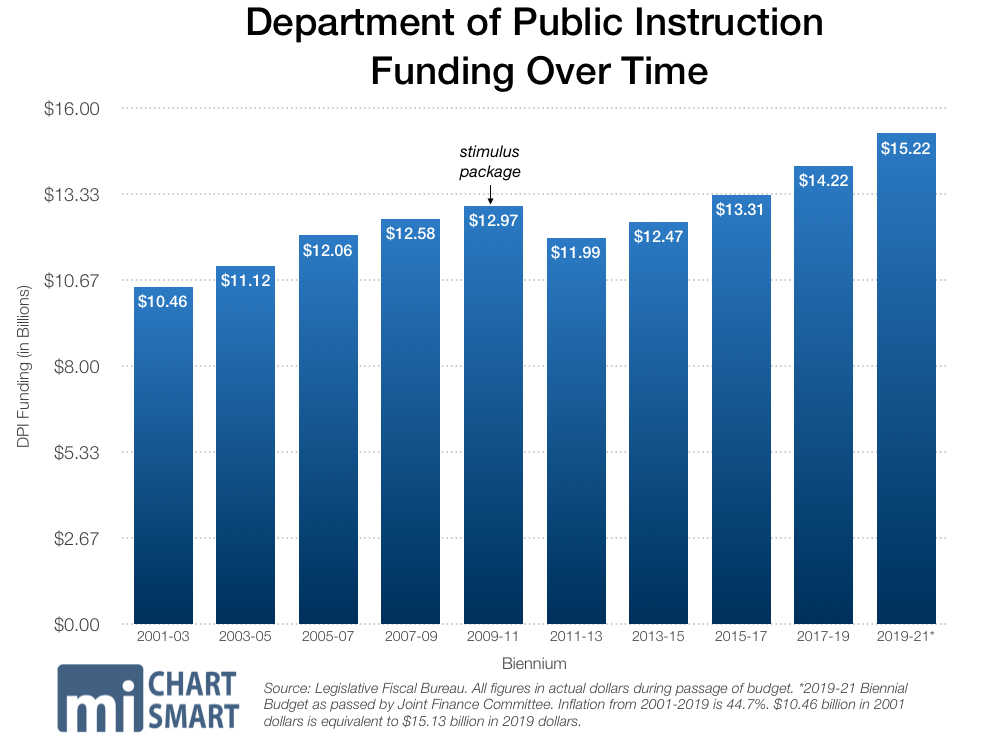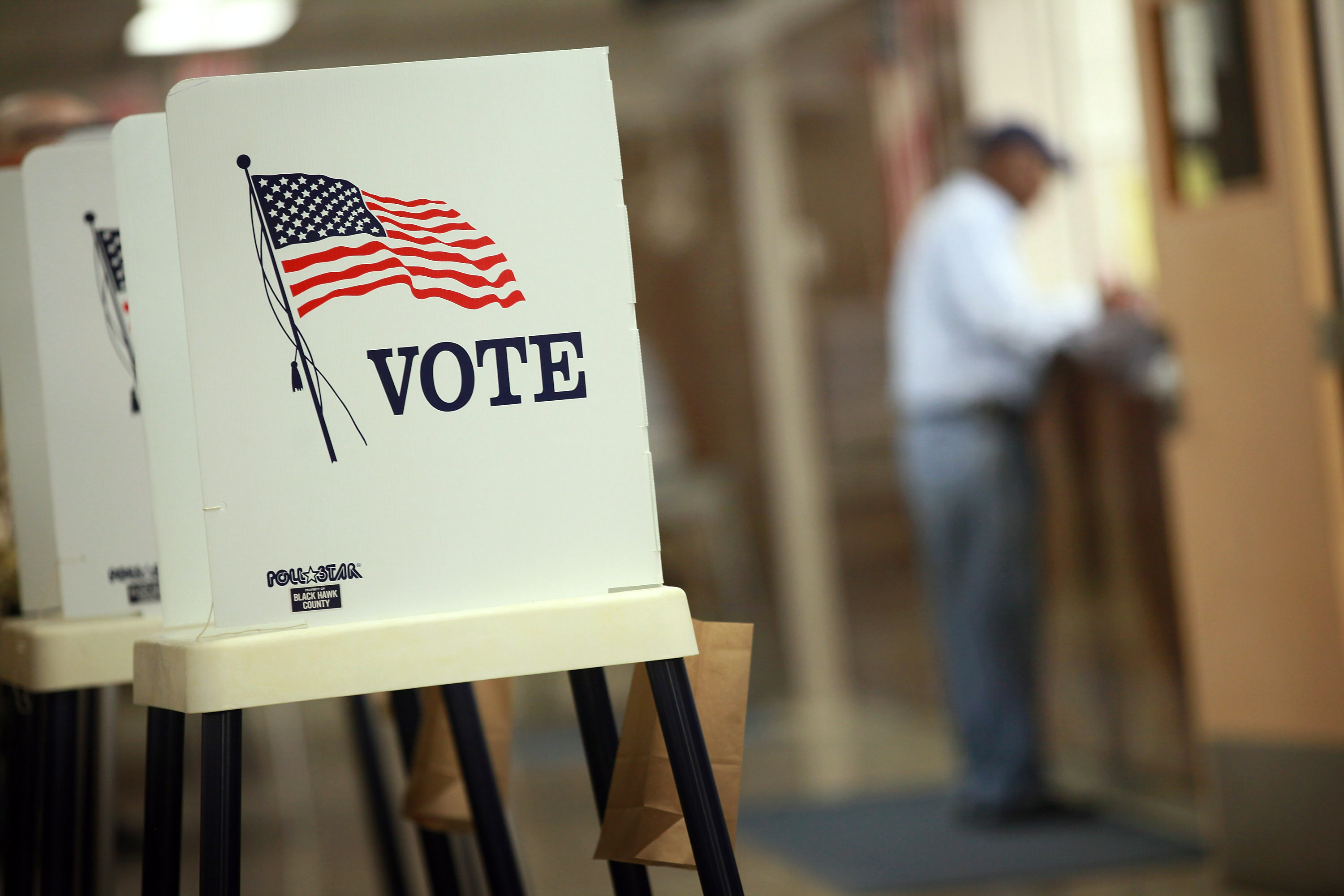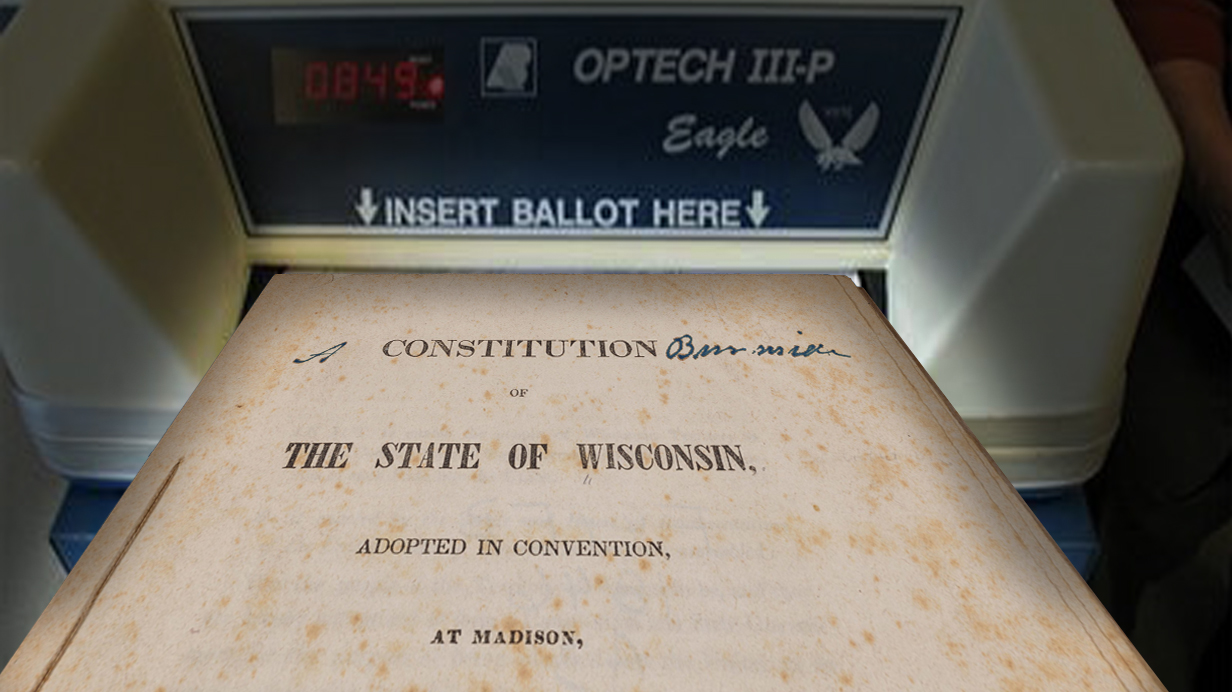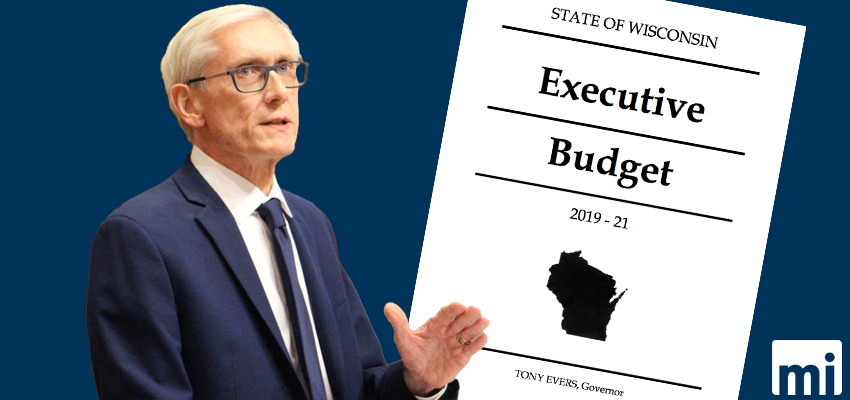 [bctt tweet=”The 2019-21 state budget process is coming to a close, so it’s time for MacIver’s biennial look at who wins and who loses under the budget now headed to the desk of @GovEvers. #wiright #wipolitics #wibudget ” username=”MacIverWisc”]
[bctt tweet=”The 2019-21 state budget process is coming to a close, so it’s time for MacIver’s biennial look at who wins and who loses under the budget now headed to the desk of @GovEvers. #wiright #wipolitics #wibudget ” username=”MacIverWisc”]
By M.D. Kittle
MADISON, Wis. — With any state budget, you win some, you lose some.
At times, the budget-writing process felt like a fiscal arms race, with Republicans pumping double, triple the amount of funding into this program or that agency.
It’s only fitting. A divided-government budget with record spending is likely to be loaded with victories and defeats to go along with all that money.
The budget passed this week by the Republican-controlled Legislature may well have produced a record number of winners and losers — some landing in both categories.
Majority Republicans in the Legislature really outdid themselves this year, with fiscal hawk Scott Walker long gone and a new sheriff in town, big-spending Democratic Gov. Tony Evers, in control of the executive branch.
At times, the budget-writing process felt like a fiscal arms race, with Republicans pumping double, triple the amount of funding into this program or that agency. Don’t take our word for it. Some Republicans actually bragged about how much more spending they handed out. In the end, though, the party that controls the purse strings just couldn’t keep up with a liberal politician who has had the word ‘No’ surgically removed from his vocabulary — at least when it comes to grow-government funding requests.
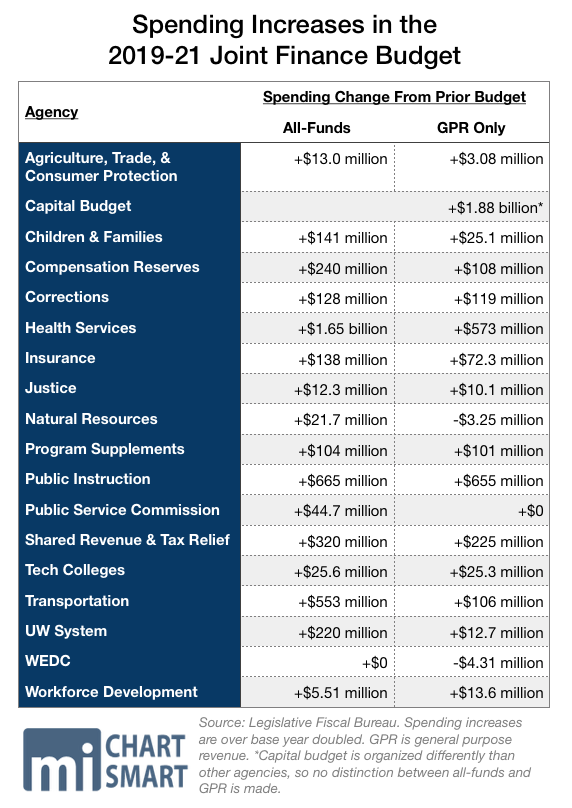
At a grand total of $83.58 billion, the Republicans’ budget is undoubtedly hefty. But it still weighs in at about $2.6 billion less than Evers’ morbidly obese $86.2 billion biennial budget plan. The governor will decide in the coming days whether he will partially veto the Republican budget document, or snuff it out all together. He could even do the politically unthinkable: Sign it as-is.
With all that money on the table, the MacIver Institute again presents our list of big winners and big losers from the biennial budget version of the Showcase Showdown.
Winner: Taxpayers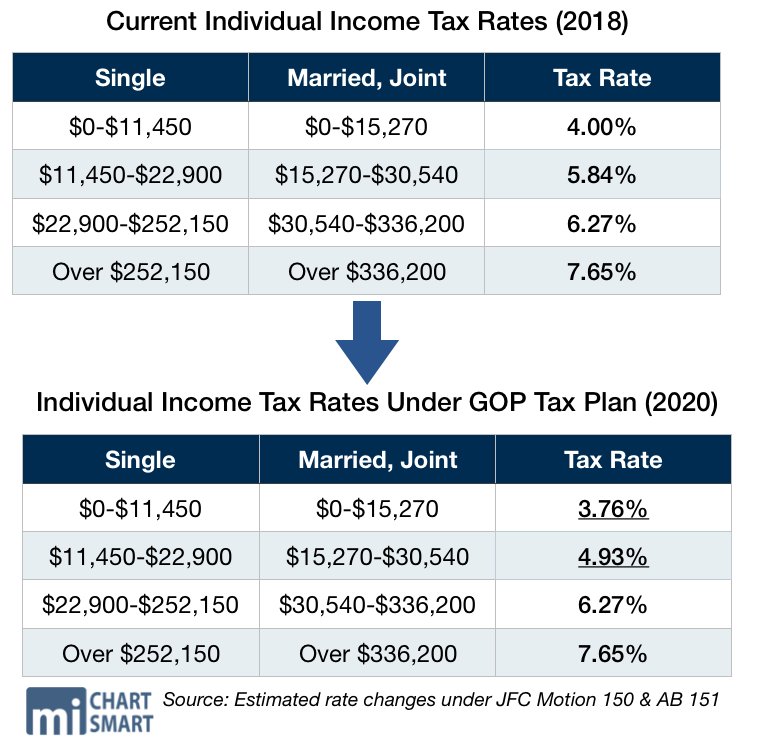
Wisconsin has long been a high tax state. In the most recent Tax Foundation ranking of states with the highest and lowest state and local taxpayer burdens, Wisconsin checks in at sixth highest. When Gov. Scott Walker served as Wisconsin’s chief executive, Republicans cut taxes by more than $8 billion. That gives you an idea of how bad the Badger State’s taxing situation is.
The Republicans’ latest two-year budget continues the tax-cutting tradition. Conservatives came up with a $500 million-plus tax cut, bringing $91 in average income tax relief in the first year and $124 in the second. Those earning between $30,000 and $60,000 would see the biggest benefit.
Evers proposed a bigger middle-income tax relief package, but he gets there by raising taxes on manufacturers and retirees. Raising taxes on anyone or any group so the government can hand out a small “credit” to a select few is morally wrong. It is divisive politics at its worst. The only way Wisconsin will ever drop in the highest-taxed rankings is if we continue to cut tax rates for everyone, not create new credits for some.
Republicans spend a lot more in their budget, but they also continue a winning tradition of returning tax dollars to the hard-working people who pay the state’s bills.
Loser: Taxpayers
So, how can the Wisconsin taxpayer be both a winner and a loser in the 2019-2021 state budget battle, you ask? Remember the significant spending increases we tipped you off to above?
The biggest problem this spending spree poses for the taxpayer will come down the road. Eventually the bill for all of this spending will come due.
Republicans went all-in, with the state’s checkbook and credit card. Their budget, contrary to what some are trying to sell, does not increase spending “only” at the rate of inflation. That Madison math doesn’t add up. It obliterates the rate of inflation — by 5 1/2 percent to nearly 10 percent.
Health care, Medical Assistance, transportation, K-12 education, University of Wisconsin System, Natural Resources, pay bumps for corrections officers, raises for DAs and rank-and-file prosecutors. The Republican budget delivers billions of dollars more in funding for just about every agency, and a lot of new programs and initiatives.
The biggest problem this spending spree poses for the taxpayer will come down the road. There is no such thing as a free lunch, as our hero Milton Friedman used to say. Eventually the bill for all of this spending will come due. A slight slowdown in the economy or an escalation in the trade wars could quickly turn our $700 million+ surplus into a deficit.
Make no mistake, taxpayers are on the hook for all of this spending, even if we suddenly find ourselves in the red. Big government advocates are never going to let up and say, I guess it is okay to cut spending this time. Big government advocates are never going to say, well you were so generous last budget you can give us the same amount or we can get by with less money this budget. Never.
The danger of unsustainable spending is that it leads to a “we have no choice but to raise taxes” manufactured crisis. When that day comes, taxpayers need to ask themselves, will these Republicans stand up to the special interests and say no? Let’s hope so.
Winner: Worker Freedom
Evers tried to pay back his Big Labor and union boss buddies for their generous campaign contributions. He failed. And his failure to kill Wisconsin’s right-to-work law, bring back Project Labor Agreements, and do away with prevailing wage reforms meant a big victory for worker freedom, and taxpayers.
Right-to-work put an end to private-sector labor organizations making compulsory union dues a condition of employment. Project Labor Agreements locked non-union contractors out of government projects, at huge cost to the free market and to the taxpayers forced to pick up the tab for significantly higher union wages. Those wages were often inflated by Wisconsin’s Great Depression-era prevailing wage laws.
The Republican-controlled Legislature repealed prevailing wage statutes over two legislative sessions. The GOP-controlled Joint Finance Committee, in re-writing Evers’ budget, dropped the governor’s gifts to Big Labor like Cardi B dumped Offset. Evers didn’t touch Act 10, Walker’s cornerstone public sector union reform law. Local governments and taxpayers statewide have seen billions of dollars in savings thanks to Act 10. Evers would smother it in a heartbeat, but he knows a lot of local governments would raise hell.
Losers: Big Labor
See above. The hope of the unions for a champagne wishes and caviar dreams budget crumbled when the Finance Committee went to work. Thank you Republicans. And organized labor isn’t likely to win too many legal battles before Wisconsin’s Supreme Court, which will retain its conservative majority thanks to the April election victory of Judge Brian Hagedorn.
While the past eight years have seen membership in public sector unions plummet, don’t shed too many tears for Big Labor. Evers and union-beholden Attorney General Josh Kaul are doing all they can administratively and legally to help out their old friends.
Winners: Bureaucrats and Educrats
Big Government is hiring. The Republican budget adds 482.04 positions total over two years, bringing Wisconsin’s army of state-related public employees to 71,771.59 positions. That’s short of Evers’ plan to add 701 positions, but it’s still a significant hiring spree. Perhaps Republican budget writers were trying to keep up with Wisconsin’s booming private sector economy, where there are more jobs than people to fill them. In the case of the state government hiring boom, it’s the taxpayer, not the company, paying the salaries. And that growing public workforce will see a decent raise — 4 percent over two years. Some will receive more.
Losers: Fiscal Conservatives and Small Government Advocates
Yeah, this was a rough one for slow-growth government conservatives. At just about every turn, the state bureaucracy got richer and bigger. Fiscal hawks were hoping to see Big Government on a diet, not standing in the buffet line for thirds at the Golden Corral.
The Republican budget does have a few shining moments of resistance. GOP lawmakers, despite mounting liberal pressure, rejected Evers’ plan to expand Medicaid. The “free” federal money not only comes with all kinds of strings and hidden costs, it draws in even more taxpayer money to fatten existing government programs and expand into new initiatives.
Losers: Parents of School-Aged Children
The Republican budget pumps $665 million more into K-12 education, pushing total funding for the Department of Public Instruction well north of $15 billion over the next two years. All that money comes with nothing in the way of accountability or ed reforms, even as the achievement gaps widen, and too many kids are trapped in failing schools, and graduates can’t pass an entry-level college math or English class.
At least Republicans fought back against Evers’ war on parental choice schools, driving out of the budget policies that would financially starve the schools to death and give the educrats all the power. Power to the people!
Winner: Gov. Tony Evers
Right about now, the Madison liberal has got to be rubbing his hands together and declaring, “Excellent,” Montgomery Burns-style. Like “The Simpsons” cartoon manifestation of avarice, Evers – or at least his far left team of advisors – got much of what he wanted with no negotiations or horse trading. The budget battle included no real debate on the size and scope of government. Evers instead set the spending bar insanely high in his budget, and Republicans raced and chased to keep up. They couldn’t. They ended up with a budget that spends a couple of billion dollars less than Evers’ blueprint, but the new governor walks away with much of the spending that he wanted. And what he wanted and will continue to want is more of your money, the taxpayer’s money, to expand government.
If he’s smart, he quickly signs the Republican budget with limited vetoes and goes home to his executive mansion to revel in his victory. “Excellent.”
Winner: Anyone Who Does’t Want Wisconsin to Turn Into the Next Illinois
Kudos to conservatives for evicting some really awful policies from the governor’s budget. They have labored over the past eight-plus years to reduce the Badger State’s onerous tax burden and economy-killing regulations. They did so to keep Wisconsin from becoming the sinkhole state that is its neighbor to the south.
Illinois’ total debt for state and local retirement benefits stands at north of $200-billion — and counting. That’s a lot of Lincolns owed in the Land of Lincoln. Ultra-liberal Gov. J.B. Pritzker just signed a crippling budget bill out of balance by up to $1.3 billion, according to the Illinois Policy Institute. That’s not a shortfall, as in the difference between what government agencies want and what responsible budgeting delivers. That’s a deficit.
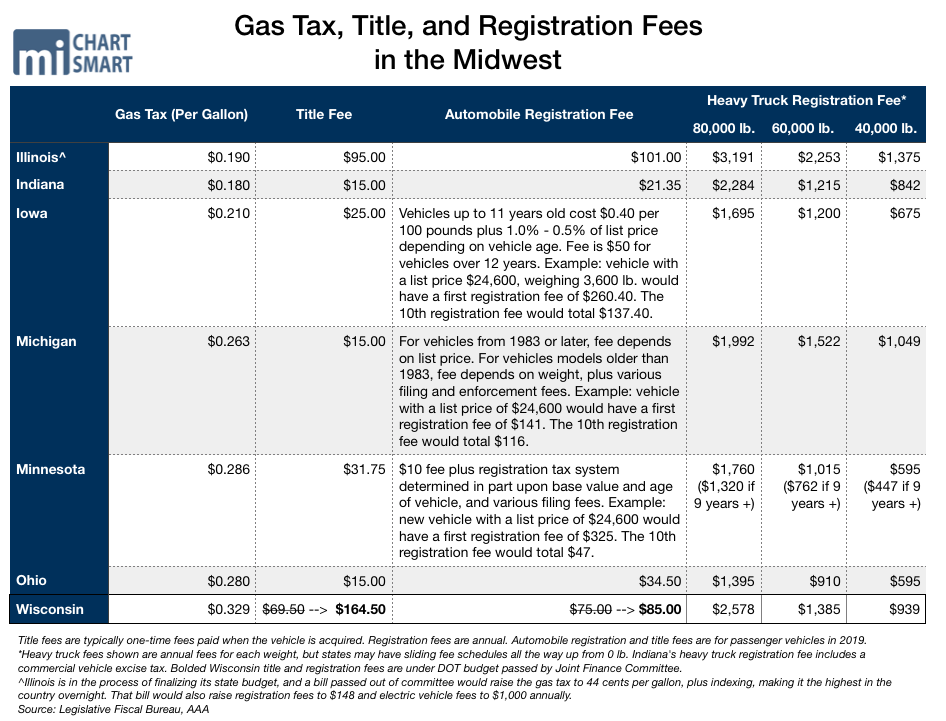
Illinois is bleeding people. The state, led by tax-and-spend-and-tax-and-spend-some-more liberals, saw its population shrink by more than 45,000 between July 2017 and July 2018, according to the most recent U.S. Census Bureau data. That’s like losing the city of Sheboygan in a single year.
Despite its many warts, the Republican budget does eliminate Evers’ Illinois inclinations. It stands by critical public labor reforms that have saved taxpayers significantly and kept Wisconsin’s public employee pension system at the top of the class of a very troubled defined benefit field. It cuts out extreme green initiatives that would be costly to Wisconsin’s economy for little to no return. It rejects Evers’ rejection of basic welfare reforms that require able-bodied recipients to work, get training, or at least be looking for work to receive the taxpayer-funded benefits.
In short, conservatives held the line on policies that would turn Wisconsin’s economy south.
